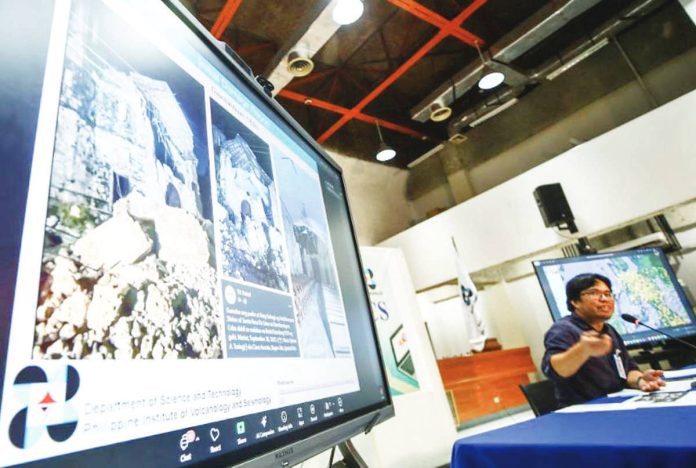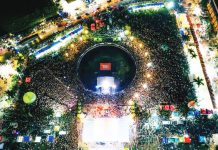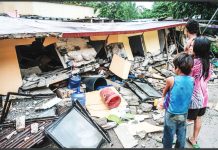
MANILA — The devastation from the powerful magnitude 6.9 earthquake that rocked Cebu earlier this week deepened Thursday as the death toll climbed to 72, with authorities warning that thousands of aftershocks could still pose danger to residents.
The National Disaster Risk Reduction and Management Council (NDRRMC) reported that all fatalities were recorded in Central Visayas.
The quake also left 294 individuals injured and disrupted the lives of more than 47,000 families across 53 barangays.
At least 4,000 displaced families remain in evacuation centers.
Authorities said 597 homes were damaged in Region 7, including 96 that were totally destroyed and 501 that sustained partial damage.
Assessments on the extent of destruction to infrastructure and agriculture are ongoing.
The quake, which struck northeast of Cebu Island at a shallow depth of five kilometers, registered Intensity 7 in Bogo City, Daanbantayan, Medellin, San Remigio, and Tabuelan. Shaking was also felt as far as Quezon Province, Zamboanga del Norte, Samar, and Antique.
As of 10 a.m. Thursday, the Philippine Institute of Volcanology and Seismology (Phivolcs) had recorded 2,652 aftershocks. Director Teresito Bacolcol warned the public against rushing back into compromised structures.
“You shouldn’t immediately return to the building if there’s visible damage after the main shock. Consult civil engineers, structural engineers in your municipal or city engineering office and seek advice regarding the integrity of the buildings,” Bacolcol said in a public briefing.
He added that residents in vulnerable areas should remain on alert.
“We advise the public to avoid landslide-prone areas. Those in low-lying areas should stay alert and heed the advisories of their local government,” Bacolcol stressed.
Phivolcs said aftershocks may continue for several days or even weeks, underscoring the need for vigilance as Central Visayas grapples with one of its deadliest earthquakes in recent years./PN







